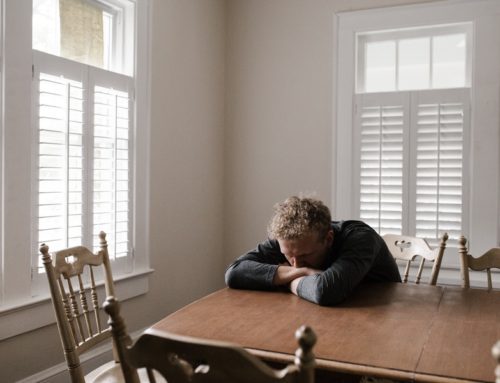People living with psychological disorders are often plagued with toxic guilt. Unlike natural guilt, which is a feeling of remorse over having done the wrong thing or failing to do the right thing, toxic guilt is much more nebulous. That’s why it’s sometimes called free-floating guilt.
Toxic guilt is a feeling of remorse or responsibility for things that are beyond one’s control.[1] Toxic guilt causes a person to feel inadequate, not good enough, or in some way inferior to others. In normal, natural guilt, we feel bad over something that’s done or not done—it’s about actions. In toxic guilt, people sometimes feel guilty over something they are—or are not.
Unlike natural guilt, toxic guilt often has no basis in reality, although the emotion of toxic guilt is quite real and can be devastating. It’s corrosive to a healthy sense of sense, and destructive to one’s self-esteem.
The following are only a few of the common causes of toxic guilt, which may come from any of the following and in combinations with each other:
- Guilt for not being perfect. Perfectionists have an unrealistic set of standards that are so high no one can possibly meet them. As a result, they carry with them a constant feeling of disappointment and of being a disappointment. People in this situation can never feel they’ve done enough to be ok or can “be enough” to be ok. Living in guilt is the result. People who were raised by perfectionists often have this kind of toxic guilt, even if they’re not themselves perfectionists. It’s a sense of not being good enough or of perpetually being unworthy.
- Surviving abuse. People who survive abusive situations often carry a sense of guilt. Abusers do everything they can to undermine a person’s sense of self-worth, and one way they do this is by instilling a sense of guilt into their victim.
- Traumatic childhoods. Households that are chaotic or full of conflict and tension tend to produce children who grow up to be guilt-ridden adults. Children tend to be self-referencing and feel as if they’re to blame for problems in the home. This is one of the most common sources of toxic guilt.
Getting over toxic guilt is possible. It’s a process of examining the causes of the guilt and de-conditioning a person’s tendency to automatically feel guilty. A good way to get beyond toxic guilt is with the help of a professional who will provide a safe, confidential environment to process your feelings and learn better ways of coping.
If feelings of guilt are getting in the way of your having the life you want, seek help. Damaris Aragon, ARNP, BC provides a full spectrum of mental health care to people in Spokane, Washington, and surrounding areas. She focuses on providing personalized, compassionate care that adheres to current evidence-based standards. Reach out to Damaris through her contact page or calling 509-342-6592.,
[1] https://www.sciencedirect.com/science/article/abs/pii/0005796793900664






